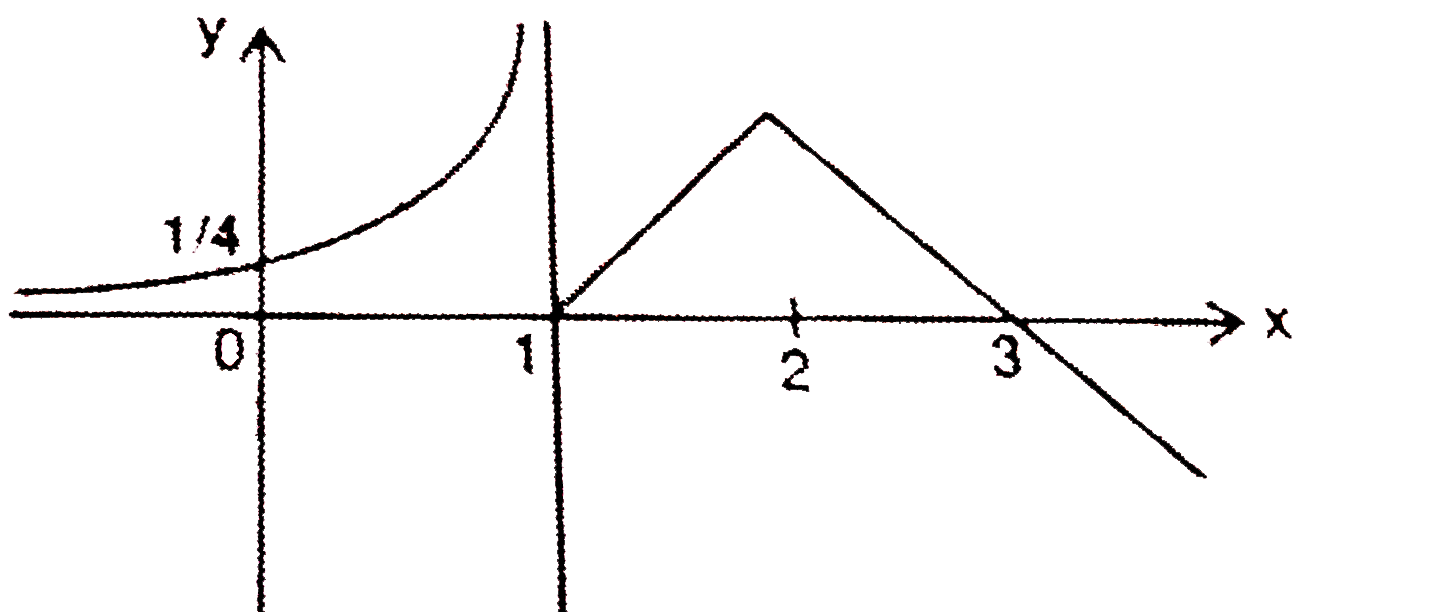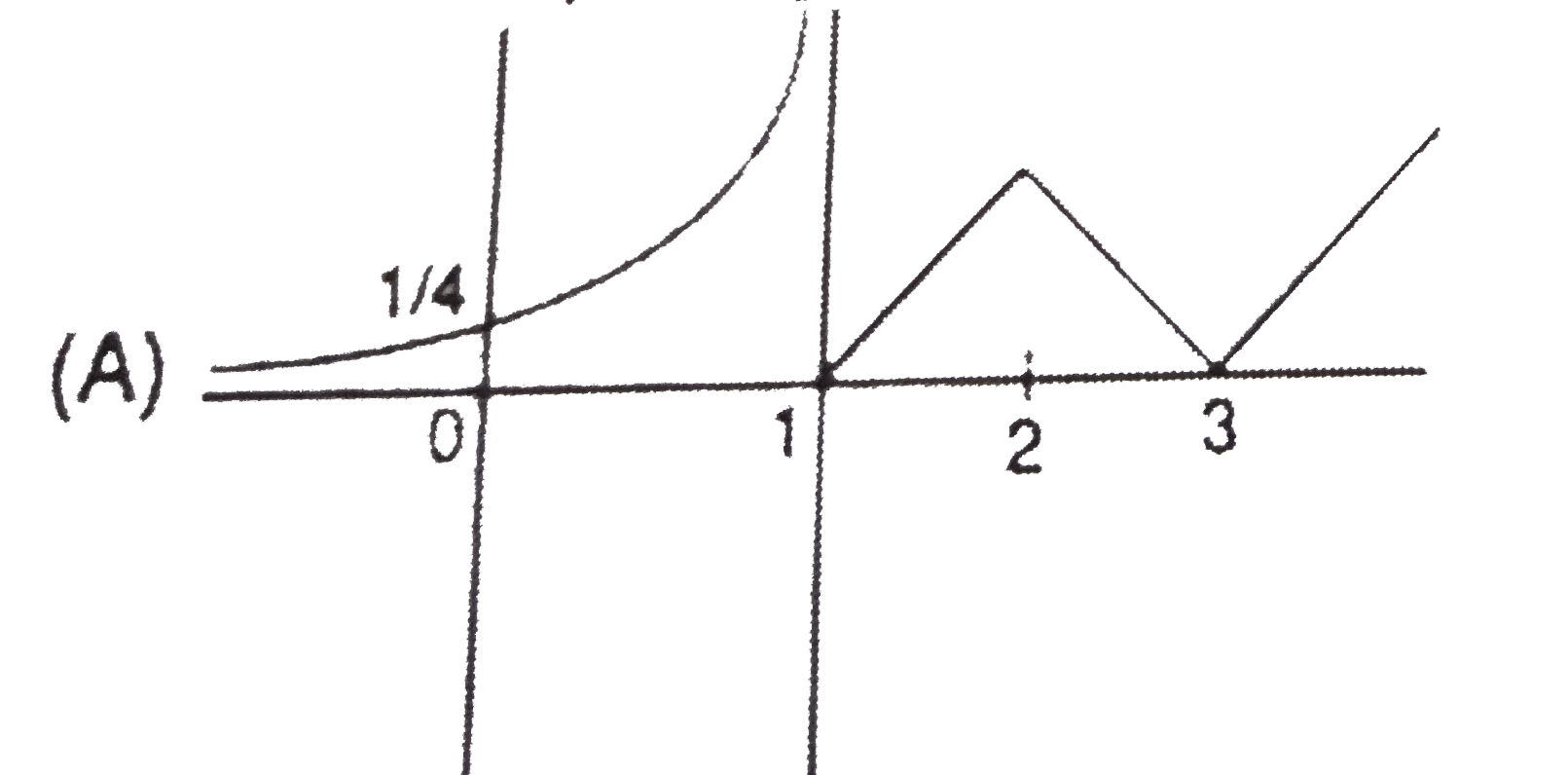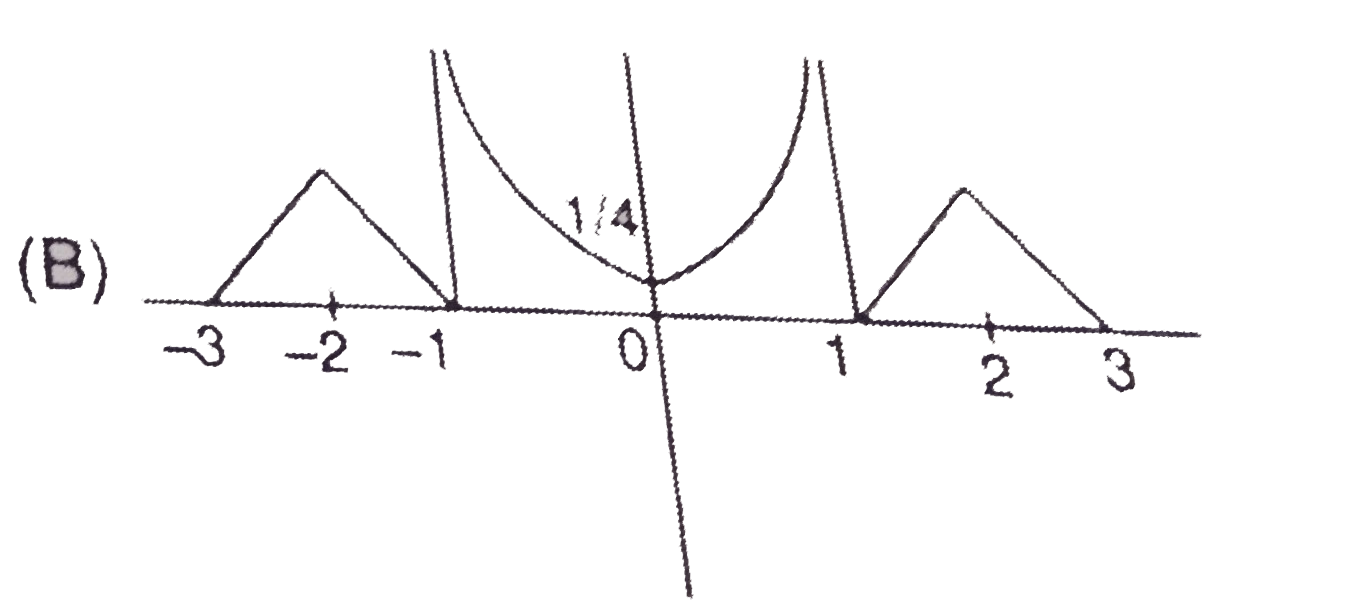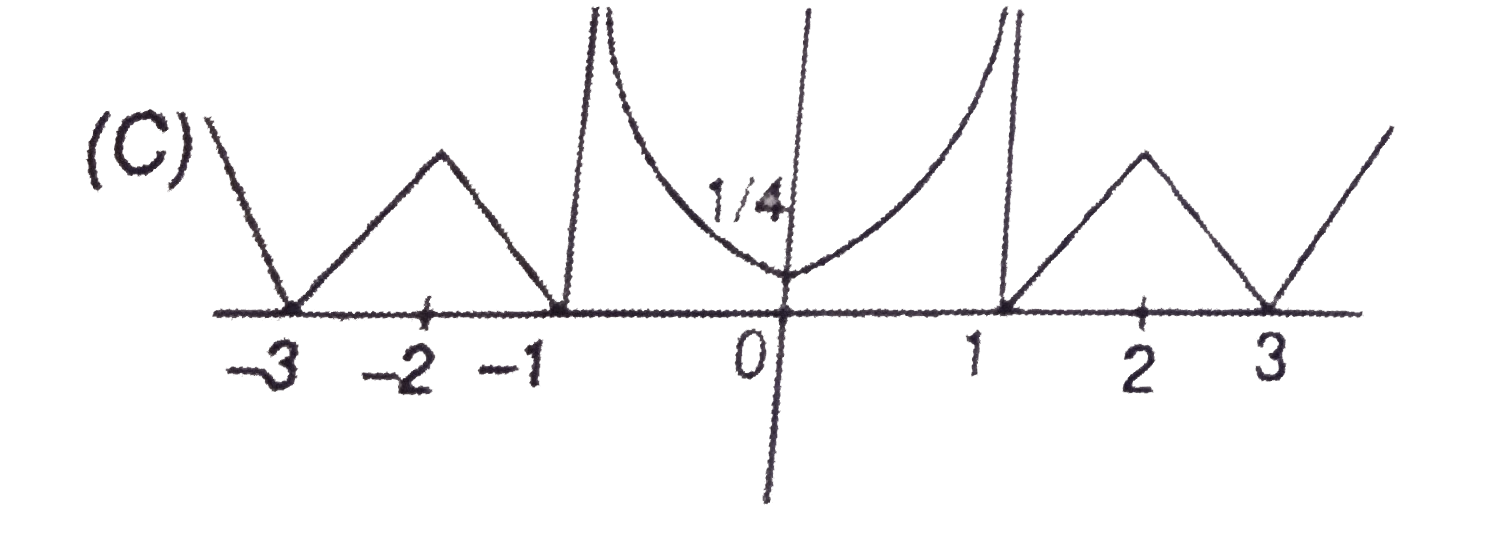consider the graph of y=g(x)=f'(x) given that f(c ) =0, where y=f(x) is a polynomial funtion

The equation f''(x)=0
has no real root
has at least one real root
has at least two distinct roots
none of these
The correct Answer is:2
f(c ) =0 Thus x =c is a root of f(x) =0
Topper's Solved these Questions
- MONOTONICITY AND MAXIMA MINIMA OF FUNCTIONSBOOK - CENGAGECHAPTER - MONOTONICITY AND MAXIMA MINIMA OF FUNCTIONSEXERCISE - Matrix Match Type
12 Videos
- MONOTONICITY AND MAXIMA MINIMA OF FUNCTIONSBOOK - CENGAGECHAPTER - MONOTONICITY AND MAXIMA MINIMA OF FUNCTIONSEXERCISE - Exercise (Numerical)
20 Videos
- MONOTONICITY AND MAXIMA MINIMA OF FUNCTIONSBOOK - CENGAGECHAPTER - MONOTONICITY AND MAXIMA MINIMA OF FUNCTIONSEXERCISE - Exercise (Comprehension)
42 Videos
- METHODS OF DIFFERETIATIONBOOK - CENGAGECHAPTER - METHODS OF DIFFERETIATIONEXERCISE - Question Bank
13 Videos
- MONOTONOCITY AND NAXINA-MINIMA OF FUNCTIONSBOOK - CENGAGECHAPTER - MONOTONOCITY AND NAXINA-MINIMA OF FUNCTIONSEXERCISE - Comprehension Type
6 Videos
Similar Questions
The graph of y=f(x) is given below

then the graph y=|f(|x|)| is :
View SolutionFollowing is the graph of y = f(x).
<imga≤ocr_imageload∈g=lazysrc=https://d10lpgp6xz60nq.cloudfront.net/physics_images/CEN_GRA_C01_S01_005_Q01.pngwh=80%mx-autosty≤=background:white;><br>F∈dthes√oftheequation f(x) = 0, f(x) = 4 and f(x) = 10.
View Solution
Knowledge Check
The graph of y=f(x) is given below

then the graph y=|f(|x|)| is :A B
B C
C Dnone of these
Dnone of these
Find the area of the region bounded by the curves y=f(x),y=|g(x)| and lines x=0,x=2, where f and g are continuous functions satisfying f(x+y)=f(x)+f(y)−8xy for all x,y∈R and g(x+y)=g(x)+g(y)+3xy(x+y) for all x,y∈R. Also f'(0)=8 and g\'(0)=-4.
View SolutionFind the area of the region bounded by y=f(x),y=|g(x)| and the lines x=0,x=2, where f,g are continuous function satisfying f(x+y)=f(x)+f(y)−8xy,∀x,y∈R and g(x+y)=g(x)+g(y)+3xy(x+y),∀x,y∈R also , f'(0)=8andg'(0)=−4.
View SolutionFind the area of the region bounded by y=f(x),y=|g(x)| and the lines x=0,x=2 , where 'f' . 'g' are continuous functions satisfying f(x+y)=f(x)+f(y)−8xy∀x,y∈R and g(x+y)=g(x)+g(y)+3xy(x+y)x,y∈R also f'(0)=8 and g'(0)=−4.
View SolutionLet f be a function such that f(x+y)=f(x)+f(y) for all xandyandf(x)=(2x2+3x)g(x) for all x, where g(x) is continuous and g(0) = 3. Then find f'(x)
View SolutionLet f be a function such that f(x+y)=f(x)+f(y) for all xandyandf(x)=(2x2+3x)g(x) for all x, where g(x) is continuous and g(0) = 3. Then find f'(x)
View SolutionA real valued function f(x) satisfies the functional equation f(x−y)=f(x)f(y)−f(a−x)f(a+y), where a is a given constant and f(0)=1 , f(2a-x) =?
View Solution(2x+3y5)+2f(x)+3f(y)5 and f′(0)=p and f(0)=q. Then f(0) is.
(where f(x) is a polynomial function)
View Solution
